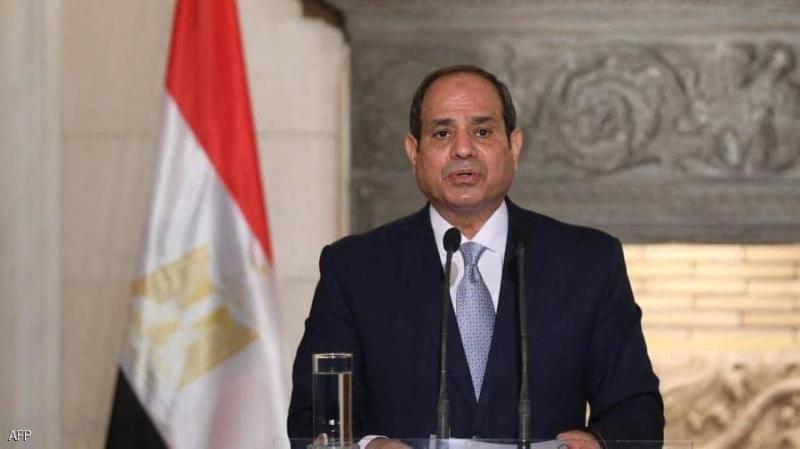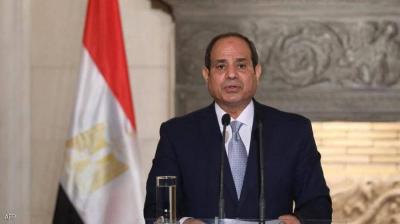Egyptian President Abdel Fattah El-Sisi affirmed on Tuesday that the concerns of Egyptians regarding the controversial Grand Ethiopian Renaissance Dam (GERD) are "acknowledged and legitimate." He reiterated that Egypt will not compromise on its water rights. El-Sisi addressed the Egyptian people, stating, "I appreciate your concerns about the GERD crisis, share your anxiety, and consider it a healthy reaction stemming from the fears and love of Egyptians for their country." He added, "However, I urge Egyptians to exercise patience," indicating that the negotiation process requires patience.
During his participation in the inauguration of several projects along the Suez Canal and in canal cities, the Egyptian president noted the ongoing diplomatic pressures to expedite efforts to reach a solution to the crisis through negotiation. He highlighted that Cairo has witnessed intensive diplomatic activity, including a visit from the U.S. envoy for the Horn of Africa and the current chairman of the African Union, the President of the Democratic Republic of Congo. Discussions aimed to find a negotiation-based resolution to the crisis.
Sisi reiterated that Egypt will not compromise on its water rights, stating, "Our rights will not be infringed upon." His remarks came as negotiations between Ethiopia, Egypt, and Sudan regarding the filling and operation of the dam face setbacks. This statement followed comments from Ethiopian Foreign Ministry spokesperson Dina Mufti, who expressed hope for a resumption of negotiations on the GERD. Mufti voiced hopes that the meetings with Congolese President Félix Tshisekedi would break the stalemate, while the U.S. envoy called for a "win-win solution" for all parties involved in the GERD crisis.
Congolese President Tshisekedi, currently chairing the African Union, arrived in Addis Ababa to consult with Ethiopian officials about the stalled negotiations. His visit to Ethiopia is part of a tour of Egypt, Sudan, and Ethiopia aimed at achieving understandings among the three countries before the second filling of the GERD.
In a separate development, President Sisi approved a development plan for the Suez Canal presented by the head of the Suez Canal Authority, Lieutenant General Osama Rabie. The president emphasized the importance of relying on the capabilities of the Suez Canal Authority for implementation and that external companies should only be engaged in limited circumstances.
Sisi approved the plan to complete these expansions within two years, explaining that these expansions are important but not urgent. They include new expansions in the southern region of the Suez Canal, specifically in the area where the Ever Given vessel ran aground last month. The development plan involves the construction of a dual-channel in the lakes area from kilometer 122 to 132 of the Suez Canal and widening the canal from kilometer 132 to 162 by 40 meters on the eastern side, as well as deepening it from 166 feet to 72 feet. This will create two new channels, each 10 kilometers long, to improve navigation and increase the Suez Canal's capacity to allow six ships to pass through concurrently, thereby enhancing ship transit, mitigating the effects of winds and waves, and increasing the number of vessels transiting the Suez Canal.
Lieutenant General Osama Rabie presented the development proposal during an event attended by President El-Sisi to inaugurate various projects in the Suez Canal and canal cities held at the Suez Canal Authority headquarters in Ismailia. Sisi had previously inspected the navigational channel of the Suez Canal Authority and received detailed briefings about developmental projects in the region and future plans to develop the channel to accommodate giant ships.




